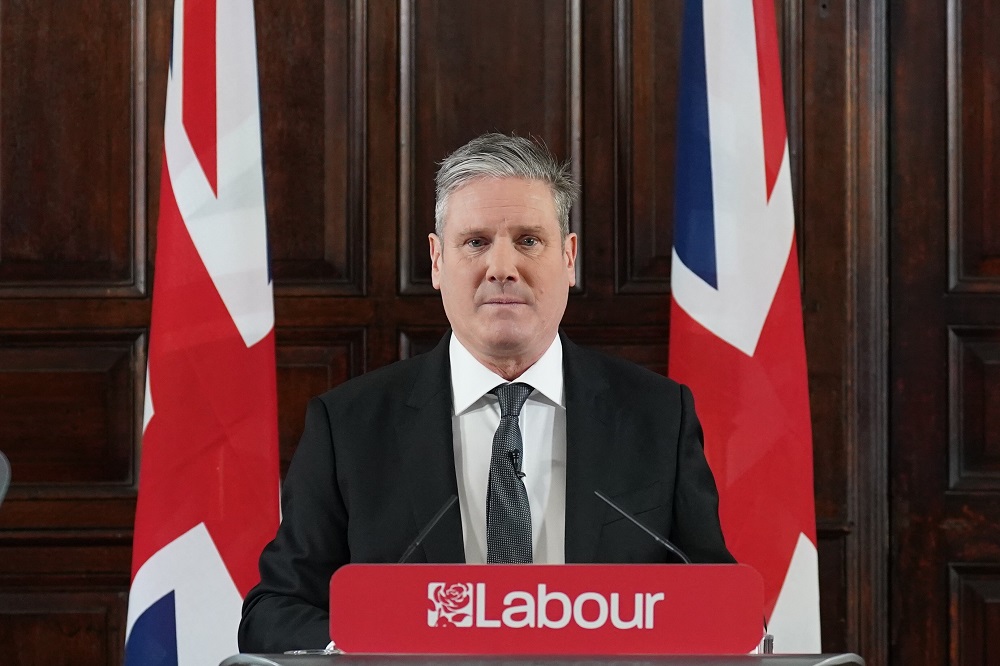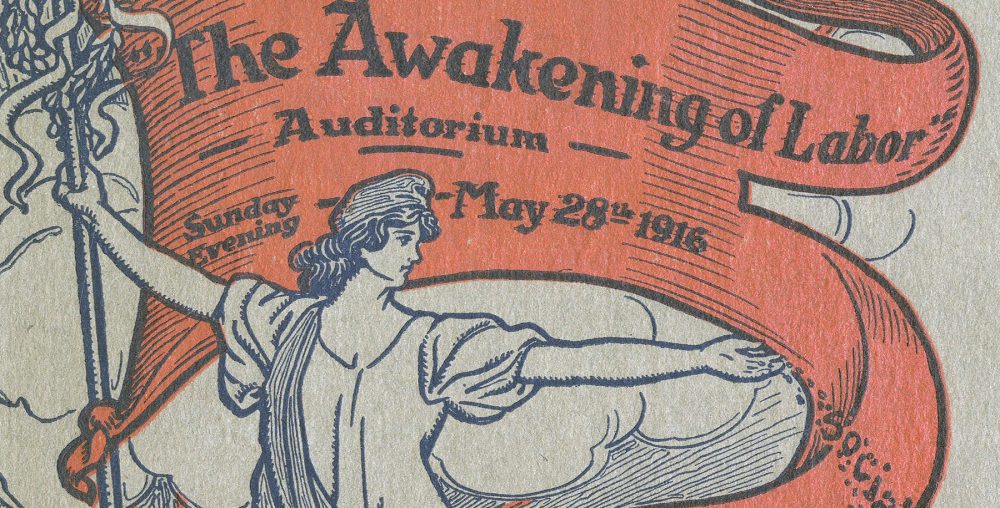
“Not only do the opinion polls say that Labour will win back working class areas in Northern England it lost in 2019, but it is also expected to do well in wealthy parts of the south that were once Tory heartlands.” So read the full-page article in the Financial Times at the start of the week. The reason? “There’s only one answer to that: Brexit”, according to the Tory Chair of the House of Commons justice committee.
One section of the Tory base is leaving while the other in the so-called Northern ‘Red Wall’ is also departing, and since only one third of the electorate now still thinks Brexit was a good idea, the pool the Tories are fishing in – against the competition of the Reform party – is getting a lot smaller. Since Starmer’s Labour Party also claims that it can get Brexit to work, and is also not talking about it, it is not a surprise that the share of the vote of the two main parties is now the lowest since 1918. Only 35 % of those polled think Starmer would make the best prime minister against 19% for Sunak, the former’s rating lower than all of the recent election winners.
It is obvious that the predicted Labour landslide victory has more to do with the unpopularity of the Tories than anything to do with Starmer, so that while Labour’s support has declined during the election so has that of the Tories. The Financial Times reported that Tory support has fallen by a third since January and the view that the only issue that matters is getting rid of them has continued to dominate.
Both parties have embraced the politics of waffle with commitments that are as few and vague as the waffle is ubiquitous. “Growth” is the answer to every problem yet the Brexit elephant in the room that squats on growth is ignored. Starmer has followed Tory policy like its shadow while dropping every promise he ever made to become leader, parading his patriotism with “no time for those who flinch at displaying our flag”.
He has presented himself as a strong and tough leader –in such a way that his rating for being trustworthy has fallen from 38 to 29; his rating for honesty from 45 to 34; his rating for authenticity from 37 to 30 and, for all his posturing, his rating for charisma from 20 to 18. What we don’t have therefore is popularity born of personality to explain why it’s not born of politics or principle.
The vacuousness of the politics of the election is covered up by trivia such as Sunak taking himself off early from commemorating the D-Day landings and the betting scandal, which shows that low-level corruption is always more easily exposed than the bigger stuff. All this however is for the consumption of the masses.
The ‘get the Tories out’ mantra that also characterises the left is perfectly acceptable to the ruling class since the Tories have failed to govern properly, leading to Brexit and Truss’s unfunded tax cuts that briefly threatened the currency and suddenly raised interest rates. Being anti-Tory is no longer a solely left-wing pursuit, which makes the primacy of getting them out (which is going to happen anyway) illustrative of the poverty and bankruptcy of many on the left.
Bourgeois commentators lament that the lack of honesty of the election ‘debate’ will lead voters to “distrust politicians and so our democracy itself” (Martin Wolf FT), while the more cynical shrug their shoulders and accept it. “The UK is approaching a general election of vast importance for its future. It just has to get next week’s one out of the way first” (Janan Ganesh FT). The first worries that the British public will not be ready for the radical attacks that are coming their way while the second is concerned only that they learn to accept them next time. Clearly both are more interested in what happens next, which doesn’t mean what happens to the Tories but what happens when we have Starmer.
One Irish commentator described him as “legendarily boring” and “resolutely moderate”, which fatuousness is what often passes for informed political commentary in the Irish press. The ruthlessness of Starmer’s dictatorship in the Labour Party and his pathological record of lying to become its leader should give even the dimmest observer pause to wonder what he will do with the exercise of real power. What struck me ages ago was the unwillingness to wonder what decisions someone so innocent of due process in the Labour Party made when he was Director of Public Prosecutions.
The Starmer government is now the threat to the working class in Britain and to us in the north of Ireland, while the Tories are receding in the rear view mirror. Preparing for this can best be done in the election by robbing this government of as much legitimacy as possible and using the election to organise potential opposition. This means not voting for the Starmer’s Labour Party but only for those on the left of the party who might be considered as some sort of opposition, including those deselected and standing as independents.
The first-past-the-post electoral system is not designed to elicit people’s true preferences but incentivises many to vote against parties and not who they are for. When there is widespread disenchantment with the major parties this can be muffled and stifled. Yet even with the current system we have seen support for the two main parties fall and ‘wasted’ votes for others may encourage further politicisation.
The Financial Times report that behind the steady gap between the Tories and Labour that will give Labour a ‘supermajority’ is a drop in Labour’s polling matching a fall in that of the Tories. These trends may reverse as voting approaches but at the moment they show that their ‘competition’ is not strengthening either. The FT claims that the Labour Party is experiencing high levels of turnover in its support, losing a quarter of those who had previously (January this year) said they were planning to vote for it. Three per cent were undecided, 9 per cent were less likely to vote, and 4 per cent were going to vote for the Lib Dems while potential Lib Dem voters were travelling in the opposite direction, perhaps for tactical reasons.
The proportion of voters who switched parties in elections used to be about 13 per cent in 1960 but is nearer 60 per cent now. Some might lament that this illustrates a decline in class consciousness but since this was often an habitual Labourism it is not the loss that it may appear. What has suffered a greater loss is the coherence of the left that now mainly rallies behind its own ruling class, today in a war that has the potential to escalate catastrophically and which involves endorsement of all the hypocritical claims of the British state and ruling class it claims it oppose. The consensus on the war is something that the war itself may have to break.

Leon Trotsky used to worry over the crisis of proletarian leadership and he often put out solutions that were usually dismissed. Well the bourgeois class requires leadership too maybe more so as it has to manage the anarchy of capitalism. No doubting the fact that there is a crisis of bourgeois leadership. The British political leadership is sub par by historical standard. The same can be said of America, France, Germany and many more. An astute supporter of the capitalist epoch must be wondering what has gone wrong with the process of educating political leaders. The crisis of bourgeois leadership does not hearld the end of capitalism merely its cohabitation with nihilism.
Starmer’s comment, already, that he will not pay doctor’s the pay rise of 35% required just to get them back to their real wages in 2008, shows what workers in general can expect from a Blue Labour government.
The dislike of Starmer and Sunak is as great as the dislike of Biden and Trump, and for the same reasons. Yet, as with the division of the world into two warring capitalist class camps, and, as you say the lining up of “the Left” simply into one or the other of those camps, rather than the independent third camp of the working-class, is mirrored in the fact that in these elections (as in France too), that Left has no independent, working-class alternative, and simply accepts the choice of lesser-evils, which is why the Far Right are making hay everywhere.
In Britain, the undemocratic electoral system means that Starmer may get a “supermajority” whilst Blue Labour gets fewer votes that Corbyn’s Labour won in 2017, or even 2019 (the latter when it was supposed to be such a catastrophic defeat), certainly, its likely to get a lower share of the vote than Corbyn’s Labour got even in 2019.
In France, the PR system means that the Far Right are likely to win a majority of the vote, and seats, whilst in Britain, the electoral system that amounts to vote rigging will probably see the Far Right Reform Party get as many votes as the Tories, but only 3 or 4 seats. The problem with that, of course, compared to France, is that in France, NR will not have an outright majority, because of PR, whereas, the same processes of political failure of the “centre”, as it cannot resolve the issues presented to it, and the failure of the Left to provide any realistic socialist alternative, means that when Starmer also immediately fails, and widespread social unrest erupts, it will be Reform, and those to its even more Far Right, in the BNP, now supplemented by a falange of Far Right Tory defectors, who will not only benefit from a surge in their direction, but, then, also from the vagaries of the electoral system. It takes only a relatively small increase in votes, and vote share, above a certain level for a deluge of seats to come their way, just as happened when the Labour Party was formed, and took seats on a large scale directly from the Liberals.
In large part, we can have no influence, and certainly no control over the election, and its outcome – though its why Marxists should be active inside the Labour party, organising and educating the more advanced workers through it, during the election, even if we cannot advocate a vote for Blue Labour’s reactionary programme – but, the battle lines are already drawn outside the ephemera of the lection and the corridors of parliament. They are set in the real material and economic conditions faced by the British state and whatever government emerges, conditions made much worse by Brexit. It is to the working-class side of those barricades that we should give our greatest attention and effort.